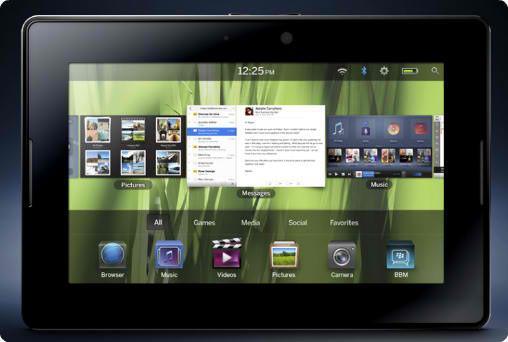
After plenty of rumors and speculation, the BlackBerry PlayBook finally went on sale two days ago. And while Research In Motion is more than likely very proud of their first tablet device, especially considering it features a brand new mobile operating system for the company in that of the QNX Software, we’re still waiting to hear how well the tablet device did in its infancy on store shelves. It’s tough to say whether or not the fact the device can run Android apps will matter in the long run; but we may have an indicator as to whether or not those native apps that the PlayBook is missing are a big deal.
In a previous article, I make a point as to why the PlayBook shouldn’t launch with missing native applications. Specifically, the tablet is missing an email application, contacts, and even a calendar app right out of the box. Considering the stance of the PlayBook in the market, this seemed just too strange to be true. Unfortunately, it’s definitely true, and it looks like Verizon may be feeling the effect of those missing apps.
We’re not talking specifically about three apps here. For a consumer, especially a consumer who happens to want to use the BlackBerry PlayBook for work, these missing apps are probably just a huge speed bump in their everyday life – especially for those who don’t necessarily want (or can’t) to bridge their PlayBook to their BlackBerry smartphone all the time. But, it’s this missing functionality out of the box, and more than likely other variables that we aren’t aware of at this point that seems to be keeping Verizon out of the PlayBook’s sights.
RIM did peg Verizon as a retail distribution partner for the tablet, and it would make sense for Big Red to dish out the tablet. RIM is still a big part of Verizon’s phone list, so bringing RIM’s first tablet device into the fold would seem to make sense. That is, unless Verizon doesn’t believe the device is ready for the limelight quite yet. There’s no doubt that the PlayBook can stand on its own in the tech specifications department, as it’s no slouch there. So, why is Verizon keeping back from the tablet? Does anyone want to touch the PlayBook?
It will be interesting to see how Verizon handles this situation from this point on. It is obviously public knowledge now that Verizon is still “evaluating” the PlayBook, and the tablet’s life on Big Red’s network is up in the air. Will RIM add the necessary features or whatever else it is that Verizon wants to make sure that the tablet launches soon? Or will RIM just let it run its course, and if Verizon wants to carry the tablet sometime in the future, then so be it?
Let me know what you think of Verizon’s position with this. Are they doing the right thing here? Or should they carry the tablet anyway, and let the consumer decide for themselves? And what do you think of Sprint launching the device?